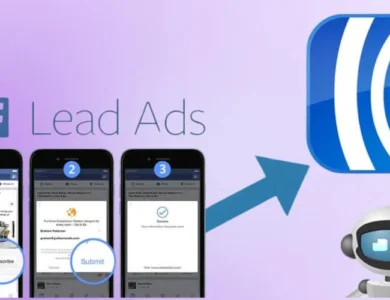Disengaging From Social Media Consciously: Ways To Undo The Harm

The adverse effects of social media have been an acute concern among youth and adults. Several mental health experts state that consuming social media content on Instagram or Facebook excessively affects a person’s lifestyle choices. As a result, it makes them less productive, socially isolated, and less motivated to attain their goals.
It is mostly because of the way social media platforms promote continuous scrolling, rash behaviors, and the requirement for instant gratification. For teens and children whose brains are at the developmental stage, social media affects brain rewiring and makes them dependent on addictive behaviors and instant rewards.
Here, we will address this issue and share how you can detox from Instagram, Facebook, and TikTok and lead a wholesome life.
The Negative Impacts of Social Media Use
You’ve often heard people saying that social media seriously harms your mental health. That is true. Statista data offers an in-depth look at the negative impacts of social media use on US teenagers. A survey was done on 1,141 respondents between the ages of 13 and 17. The results shared that:
- 70% of people felt excluded when they were using social media
- 43% confessed to deleting social media posts because they received very few likes or not as many likes as they wanted
- 43% felt unwanted or inadequate about themselves if there was no one to comment or like on their post
- 35% of people reported witnessing cyberbullying
Even though the data is based on the youth, these after-effects of social media use can occur in adults as well. Therefore, it’s not surprising that both teens and adults are trying to disengage from social media consciously and correct the harm that has already been done to them.
The Need For a Social Media Detox
Irrespective of the community and connection that Instagram promises, it has severe repercussions for your mental health. It is true for any other social media networking platform as well.
TruLaw states that users typically face low self-esteem after they have scrolled through the glamorous pictures of others. It results in negative social comparison and makes them feel not enough as a person. Social media platforms are designed similarly to slot machines and they can also promote addictive behavior because users keep seeking validation through others’ comments and likes.
On the surface, you might feel that it is nothing major. But over time, you will realize that you are leading a life constantly seeking others’ approval and catering to a certain notion. Therefore, taking a break from social media is a useful thing to do.
Are you wondering how to go about it to dissolve the negative effects of social media addiction? If so, the following ways can help you:
Add Downtime to Your Routine
Do you look at your phone the moment you get up from sleep? Similarly, is it the last thing you see before you go to sleep? If so, it’s time that you break this cycle by opting for a ‘digital curfew’. Under this, make sure you don’t use your phone one hour before you go to sleep. Similarly, don’t use it for an hour when you get up as well.
It will enable you to unwind better and have a good night’s sleep, which can cure depressive patterns and anxiety. It might appear to be challenging at first and less comfortable but persist in the practice to experience the benefits.
Turn Off Notifications
Notifications are tempting and make us browse through social media platforms even when we are engaged in some other activity. The need to know what we have been notified about is high for most people. Therefore, one of the best ways to address this is by switching off the notifications for the apps that you use most.
At the start, you will feel disconnected and strange. But gradually you will develop a healthy way of checking the updates.
Get Engaged in Offline Activities
We try to compensate for those feelings online that we lack offline. For instance, if you want to feel connected and counted by the people who are important to you and aren’t able to, you tend to make posts that will get their attention. Instead of creating this loop of seeking validation online, make sure that you get involved in offline activities that will make you feel cherished and loved by others.
When you try to substitute real-time activities that can foster a permanent connection with online posts that offer temporary validation, you are bound to be discontent. It is the root cause of depression, social isolation, and feeling inadequate.
In conclusion, when you know how to use it in your favor, social media can be a great tool for connection or collaboration. Otherwise, you might be highly addicted to it and allow it to harm you. It will gradually ruin your quality of life. Hence, it is necessary to address this issue now and opt for a social media detox that will help you to set things right.










